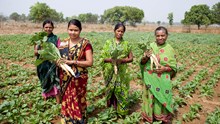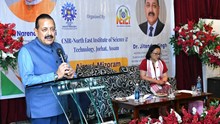
Ghana's President, Nana Addo Dankwa Akufo-Addo, has inaugurated an ultramodern maize processing factory at Nsuta-Kwagye in the Sekyere-Central District of the Ashanti Region, as part of the 'One District, One Factory' initiative.
The facility's construction began in January 2020, and it will be finished and handed over in June 2022, equipped with cutting-edge processing equipment such as a maize drying plant and a grit milling machine. It has a backup generator and a mechanised borehole to supply water to the factory, as well as a warehouse, fully furnished office space for staff, a conference room, a laboratory, and a workers' canteen.
The Sekyere Maize Processing Factory is expected to directly employ 118 workers, who will work on nucleus maize farms, including management professionals, factory floor workers, and plantation management personnel.
Furthermore, the Sekyere Central Union of Maize Producers Associations, the mother organization of all maize farmer-based organisations in the district, would be directly engaged as contract maize suppliers to the factory.
The government sought funding from the African Development Bank (AfDB) to implement this new concept of establishing common user facilities in five districts where farmers were involved in the same commodity value chains but lacked facilities to process their produce. To that end, the Sekyere Central Union of Maize Producers Associations owns 70% of the maize processing facility, the Ministry of Trade and Industry owns 20%, and the Traditional Council owns 10%.
The idea was born in 2017, as a result of the Ministry's policy directive to realign the Rural Enterprises Programme with the Government's Industrial Transformation Agenda. The Ghanaian government is also working to establish a Grains Development Authority (GDA) to further the development and regulation of the domestic grain and legume markets. This proposed public institution is envisioned as a panacea for the various identified bottlenecks in domestic grain and legume production, marketing, and trade.
Annual food price fluctuations in the country, an ineffective and inefficient buffer stock system, uncontrolled activities of foreign traders (grain aggregators from neighbouring countries), and unregulated grain and soybean exports are among the bottlenecks.
According to the Minister of Food and Agriculture, the GDA, which is expected to be publicly funded from the start, will significantly supplement the achievements made under the government's flagship agricultural programme, Planting for Food and Jobs (PFJ), which was launched in 2017.
















